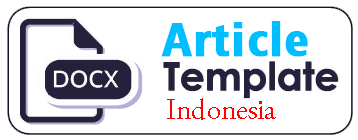The Effectiveness of MOOCs on Learning Outcomes in Energy Training
An Evaluation Based on the Kirkpatrick Model
DOI:
https://doi.org/10.54849/monas.v7i1.267Keywords:
MOOC, Learning Evaluation, Kirkpatrick MethodAbstract
This study evaluates participant responses to energy-sector training delivered through a Massive Open Online Course (MOOC), measures the resulting learning outcomes, and analyzes the influence of participant reactions on those outcomes. The research employed a survey-based evaluation involving 121 participants of the MOOC GREEN Cohort III training at PPSDM KEBTKE. Data collection methods included questionnaires to assess participant reactions and tests to measure learning outcomes. Data were analyzed using descriptive statistics, paired sample t-tests, and simple correlation analysis. Findings indicate that overall participant responses were moderately positive, with an average score of 3.57 out of 4, although certain aspects—particularly platform design—require improvement. Pre-test and post-test results revealed a significant increase in learning outcomes, with an average gain of 17.73 points. Correlation analysis between pre-test and post-test scores showed a strong positive relationship. However, the correlation between participant responses and learning outcomes yielded a Sig. (2-tailed) value of 0.186, indicating a very weak relationship. The study concludes that MOOC-based training is effective in enhancing learning outcomes in the energy sector. Nevertheless, improvements in platform aesthetics and inclusivity are recommended to enrich the overall learning experience.
References
Alhazzani, N. (2020). MOOCs impact on higher education. Januari. DOI: https://doi.org/10.1016/j.ssaho.2020.100030
Rahman et all. (2023). Design and development of MOOCs to develop civil apparatus competence for the Banten Provincial Government toward Banten Corporate University. Jurnal Iqra’: Kajian Ilmu Pendidikan, 8(1), 133–145. https://doi.org/10.25217/ji.v8i1.3251 DOI: https://doi.org/10.25217/ji.v8i1.3251
Arizki, M. Y., & Satria, R. (2023). Pengembangan sumber daya manusia berbasis Massive Open Online Course pada kinerja karyawan. Al Qalam: Jurnal Ilmiah Keagamaan dan Kemasyarakatan, 17(5), 3436. https://doi.org/10.35931/aq.v17i5.2648 DOI: https://doi.org/10.35931/aq.v17i5.2648
Azimi, et all (2024). Exploring the impact of Massive Open Online Courses (MOOCs) on higher education in Afghanistan: Opportunities, challenges, and policy implications. Journal of Education Research, 5(1), 957–968. https://jer.or.id/index.php/jer/article/view/993 DOI: https://doi.org/10.37985/jer.v5i1.993
Cilliers, et all (2023). Motivational factors that influence the course completion rate of Massive Open Online Courses in South Africa. International Journal of Learning, Teaching and Educational Research, 22(6), 212–225. https://doi.org/10.26803/ijlter.22.6.12 DOI: https://doi.org/10.26803/ijlter.22.6.12
Dewi, M. P., & Rahmawati, S. (2024). Dampak implementasi Massive Open Online Course (MOOC) di berbagai negara. INOTEKS: Jurnal Inovasi Ilmu Pengetahuan, Teknologi, dan Seni, 1(1), 1–12. https://doi.org/10.21831/ino.v1i1.57640 DOI: https://doi.org/10.21831/ino.v1i1.57640
Evianto, E. (2020). Persepsi peserta atas penyelenggaraan Massive Open Online Course (MOOC) audit berbasis risiko. Cendekia Niaga, 4(1), 17–22. https://doi.org/10.52391/jcn.v4i1.474 DOI: https://doi.org/10.52391/jcn.v4i1.474
Harefa, E. (2023). Analisis komparatif penggunaan Massive Open Online Course dan pembelajaran offline terhadap perilaku belajar dan hasil prestasi akademik mahasiswa PGSD. Jurnal Elementary, 6(1), 5. https://doi.org/10.31764/elementary.v6i1.11903 DOI: https://doi.org/10.31764/elementary.v6i1.11903
IKP, P. A. (2024). Mengenal IMDI, pengukuran tingkat kompetensi dan keterampilan digital masyarakat Indonesia sampai tingkat kabupaten/kota. https://bpsdm.kominfo.go.id/satker/paikp/berita-mengenal-imdi-pengukuran-tingkat-kompetensi-dan-keterampilan-digital-masyar-5-68
Oka, et all (2023). Effectiveness of MOOCs-based safety management system learning development. Scaffolding: Jurnal Pendidikan Islam dan Multikulturalisme, 5(1), 337–346. https://doi.org/10.37680/scaffolding.v5i1.2617 DOI: https://doi.org/10.37680/scaffolding.v5i1.2617
Pambudi, M. B., & Wibawa, S. C. (2020). Pengaruh model pembelajaran Massive Open Online Courses terhadap hasil belajar peserta didik. Jurnal IT-EDU, 5(1), 294–302. DOI: https://doi.org/10.36526/tr.v5i1.1200
Priyadi, et all. (2021). Prediktor kelulusan peserta yang mengikuti program MOOC SEAMOLEC. JISIP (Jurnal Ilmu Sosial dan Pendidikan), 5(2). https://doi.org/10.36312/jisip.v5i2.1819 DOI: https://doi.org/10.58258/jisip.v5i2.1819
Pulungan, Z. M. (2024). Evaluasi tingkat efektivitas pelatihan berbasis MOOC (Massive Open Online Courses) di PPSDM KEBTKE Kementerian. DOI: https://doi.org/10.52596/ja.v8i1.235
Rifazka, A. (2024). Mendorong pendidikan Indonesia ke era digital: Peran vital infrastruktur internet dan teknologi informasi. Digitaltransformationtech. https://digitaltransformation.co.id/mendorong-pendidikan-indonesia-ke-era-digital-peran-vital-infrastruktur-internet-dan-teknologi-informasi/
Romadhon, M. S., Purwandari, B., Eitiveni, I., & Purwaningsih, M. (2023). Analysis of factors influencing the successful use of Massive Open Online Courses (MOOCs) to prepare digital talent. Journal of Educational Science and Technology (EST), 9(2), 128. https://doi.org/10.26858/est.v9i1.44936 DOI: https://doi.org/10.26858/est.v9i1.44936
Sugiyono. (2023). Metode penelitian evaluasi. Bandung: Alfabeta.
Downloads
Published
Issue
Section
License
Authors who publish in this journal agree to the following terms:
- Authors retain copyright and grant the journal right of first publication with the work simultaneously licensed under a Creative Commons Attribution-NonCommercial-ShareAlike 4.0 International License that allows others to share the work with an acknowledgement of the work's authorship and initial publication in this journal.
- The journal allows the authors to hold the copyright without restrictions and to retain publishing rights without restrictions.
- Authors can enter into separate, additional contractual arrangements for the non-exclusive distribution of the journal's published version of the work (e.g., post it to an institutional repository or publish it in a book), with an acknowledgement of its initial publication in this journal.







